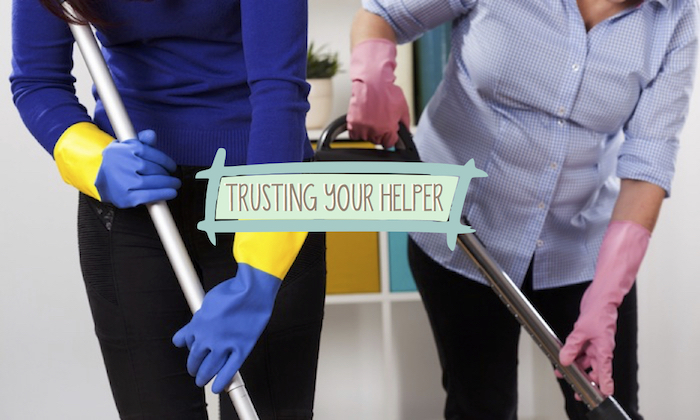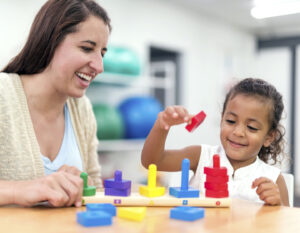

A ten-minute interview plus a reference is rarely sufficient to determine whether you trust another human being. While trust at first sight is possible, the more likely scenario is that both ample time and proper training are required to learn to trust your helper. This is true for most working relationships but never more true than when the employee lives with you at home.
Now that you’ve decided to hire a helper, how do you increase the chances of having a meaningful, trustful relationship?
How to increase the likelihood of trusting your helper:
- Define what trust means for you. Your definition may be different than your neighbor’s. What does it mean to you (and your partner) to trust another human being? Does this answer change depending on whether the person is watching your child(ren) and/or material possessions? Trust exists on a continuum for some (“I trust someone X amount”) whereas for others, trust is black and white.
- Set realistic expectations; your helper is there to help — not run your life or take your place. If your expectations are grandiose, then learning to trust your helper will be difficult.
- Train your helper properly. This is often overlooked and one of the keys for making sure your helper understands how your family would like work done. In addition to the informal training she will receive by observation at home, enroll your helper in a course specifically geared towards professional training.
- Ask yourself what you can tolerate. Would you continue to trust your helper if you found out she was wearing your clothes while you’re not home? How about if you found out she hit your child because he or she was having a tantrum? Before you know your own values, it’s hard to ask another person to follow them.
- Watch with a responsible eye. A responsible eye neither over nor under watches. Do you want to use cameras in your home? The answer is different for every family. Some families cannot imagine having a “stranger” in their home without a camera whereas others are horrified by the idea. Do what’s right for your family.
- Come up with a plan for how you’re going to tackle problems. Challenges in any relationship are inevitable. Overcoming and deriving strength from struggles is what moves a relationship forward.
- Listen to your gut. Many times pointing the finger at yourself is a good idea to ask how you might have been responsible in any given situation. Yet, if you feel that something may be wrong—especially when it comes to your children—then listen your gut. At that point, there’s no reason to analyze.
In the end, we learn to trust by defining our boundaries and values, explicating them clearly (both through informal and formal training), and learning to take chances. Trust is an active process and, if reached, the birth of a real relationship.
 View All
View All











 View All
View All





 View All
View All


 View All
View All












